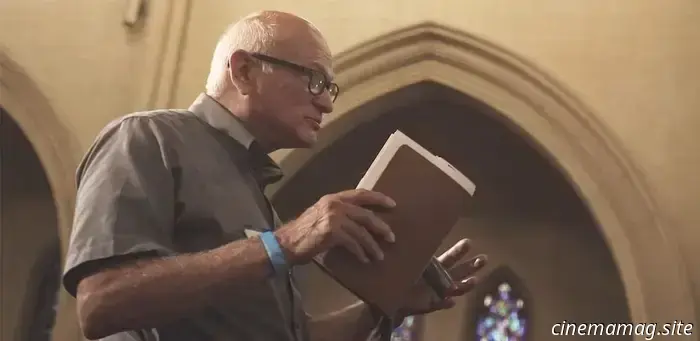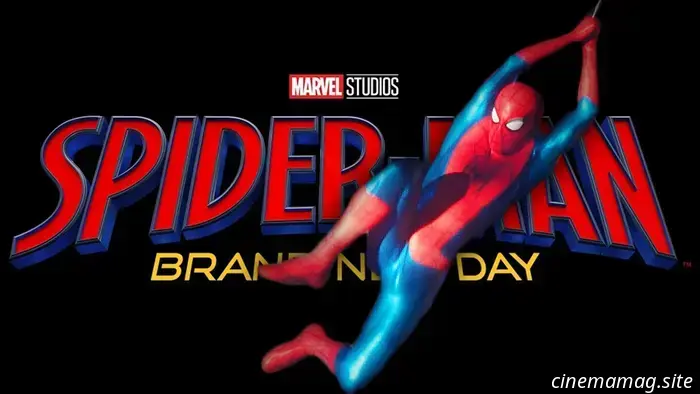
1946 Doc's Remarkable Claim: Biblical Mentions of Homosexuality Are Mistranslations.
1946: The Mistranslation That Shifted a Culture is a thought-provoking and deep documentary that examines the idea that the Bible views homosexuality as a sin.
This concept may be surprising to those familiar with contemporary Christian fundamentalism, particularly for individuals who grew up in devout households that showed no acceptance of homosexuality. However, the film, which is now accessible for home viewing after a lengthy festival circuit, presents factual evidence to support its claims.
Directed by Sharon “Rocky” Roggio, 1946 makes a strong argument that the Bible didn't mention homosexuality until that year, and that references to it were introduced out of misunderstanding and a flawed interpretation of obscure Greek terms.
The documentary features Christian scholars who sift through overlooked archives at Yale University to illustrate how the mistranslation occurred and assert that conservative Christians earnestly began propagating this mistranslation in the 1970s to scapegoat the gay community and counteract its rising liberation movement.
Does the Bible Even Mention Homosexuality?
The film contends that many people have been wrongly harmed, imprisoned, assaulted, ostracized, or killed due to misinterpretations of Greek.
Roggio, who appears in the film, is a lesbian and the Christian daughter of evangelical minister Sal Roggio, who uses Bible arguments to claim that homosexuality is a sin.
In the film, she seeks common ground with him and attempts to alter his views. Conversely, he hopes she will renounce her lesbianism and advocate for gay conversion.
You might wonder while watching 1946 if engaging with individuals who hold deeply rooted anti-gay beliefs is worthwhile. Can presenting a compelling factual argument change the minds of those who believe they are following God’s will?
Yet, 1946 emphasizes maintaining open communication and promoting understanding through love and grace, rather than through harsh disputes.
Rocky and Sal Roggio both possess some influence in their long-standing discussions: they care for each other and want to remain in each other’s lives. She will continue to strive to change her father's beliefs, while he will persist in trying to convert her, though it seems neither will succeed. Nonetheless, they will keep conversing.
Is Dialoguing with Anti-Gay Christians Futile?
Evidently not. The film early on illustrates that change is possible by introducing the engaging Kathy Baldock, a Christian conservative who evolves into an LGBTQIA+ advocate after forming a friendship with a lesbian through hiking.
She and Ed Oxford, a gay Christian theologian who has been marginalized by his peers, start examining the influential 1946 Bible translation, which they believe is a mistranslation.
Oxford, a collector of ancient Bibles, argues that none of these texts contain the term “homosexual.”
The film dedicates considerable time to analyzing the so-called “clobber verses,” the parts of the Bible that conservatives have long used to justify their animosity and discrimination toward individuals in the LGBTQ+ community.
According to Oxford, the Bible condemns individuals who are lazy, weak, slothful, or predatory, and the translators of 1946 incorrectly equated that with “homosexuality.”
Baldock and Oxford assert that this interpretation was misguided or malicious—not aligned with God’s intent. They argue in the film that God's desire is for love and grace to be extended to all.
1946: The Mistranslation That Shifted a Culture is now available for streaming.
Main image: Pastor Sal Roggio, whose daughter Sharon “Rocky” Roggio directed 1946: The Mistranslation That Shifted a Culture.
Other articles
 McFarlane's DC Super Friends Wave 2 introduces Superman, The Flash, Cheetah, Captain Cold, and Toyman.
After introducing its new DC Super Friends series of retro-themed action figures earlier this year, featuring a launch lineup that included Batman, Green Lantern, Lex Luthor, Sinestro, and The Riddler, McFarlane Toys has now officially announced wave 2. This wave includes Superman and The Flash, along with Legion of Doom members Cheetah and Captain Cold.
McFarlane's DC Super Friends Wave 2 introduces Superman, The Flash, Cheetah, Captain Cold, and Toyman.
After introducing its new DC Super Friends series of retro-themed action figures earlier this year, featuring a launch lineup that included Batman, Green Lantern, Lex Luthor, Sinestro, and The Riddler, McFarlane Toys has now officially announced wave 2. This wave includes Superman and The Flash, along with Legion of Doom members Cheetah and Captain Cold.
 Season 9 of Dragon Ball: The Breakers introduces fresh content.
Season 9 of DRAGON BALL THE BREAKERS is now live on PC and consoles. This newest season for the popular game brings fresh content to players, featuring a new raider and a new mechanic to manage events each month. You can watch the new trailer below, highlighting the season's newcomers. The new raider […]
Season 9 of Dragon Ball: The Breakers introduces fresh content.
Season 9 of DRAGON BALL THE BREAKERS is now live on PC and consoles. This newest season for the popular game brings fresh content to players, featuring a new raider and a new mechanic to manage events each month. You can watch the new trailer below, highlighting the season's newcomers. The new raider […]
 LEGO reveals Spider-Man: Across the Spider-Verse collectible minifigures.
LEGO has introduced a series of minifigures based on the acclaimed animated sequel Spider-Man: Across the Spider-Verse. This collection features Miles Morales/Spider-Man, Spider-Man 2099, Spider-Gwen, Spider-Punk, Spider-Man India, Miles G. Morales/Prowler, Peter B. Parker/Spider-Man, May “Mayday” Parker, Spider-Byte, Werewolf Spider-Man, Web-Slinger, Cyborg Spider-Woman, and Sun-Spider. The figures became available on September 1st, with a price of $4.99/£3.49.
LEGO reveals Spider-Man: Across the Spider-Verse collectible minifigures.
LEGO has introduced a series of minifigures based on the acclaimed animated sequel Spider-Man: Across the Spider-Verse. This collection features Miles Morales/Spider-Man, Spider-Man 2099, Spider-Gwen, Spider-Punk, Spider-Man India, Miles G. Morales/Prowler, Peter B. Parker/Spider-Man, May “Mayday” Parker, Spider-Byte, Werewolf Spider-Man, Web-Slinger, Cyborg Spider-Woman, and Sun-Spider. The figures became available on September 1st, with a price of $4.99/£3.49.
 Hulk! New Outfit! Punisher! Mister Negative!? Everything We’re Aware Of Regarding Spider-Man: Brand New Day
EJ Moreno discusses the insights we have regarding Spider-Man: Brand New Day. Spider-Man Day honored the beloved neighborhood superhero and his web-slinging adventures with a fresh hint for the forthcoming fourth film in the Sony/MCU series. Featuring a new glimpse of our updated suit and some on-set leaks suggesting a significant adversary, it's time to […]
Hulk! New Outfit! Punisher! Mister Negative!? Everything We’re Aware Of Regarding Spider-Man: Brand New Day
EJ Moreno discusses the insights we have regarding Spider-Man: Brand New Day. Spider-Man Day honored the beloved neighborhood superhero and his web-slinging adventures with a fresh hint for the forthcoming fourth film in the Sony/MCU series. Featuring a new glimpse of our updated suit and some on-set leaks suggesting a significant adversary, it's time to […]
 A Quiet Place Part III is slated for release in 2027, with John Krasinski coming back as the writer and director.
John Krasinski is poised to come back to the franchise he guided to over $600 million at the worldwide box office, taking on the roles of producer, writer, and director for A Quiet Place Part III. There have been no announcements regarding the cast, so it remains unclear if Krasinski will revisit the remote island where he left Emily Blunt, Noah Jupe, and others.
A Quiet Place Part III is slated for release in 2027, with John Krasinski coming back as the writer and director.
John Krasinski is poised to come back to the franchise he guided to over $600 million at the worldwide box office, taking on the roles of producer, writer, and director for A Quiet Place Part III. There have been no announcements regarding the cast, so it remains unclear if Krasinski will revisit the remote island where he left Emily Blunt, Noah Jupe, and others.
 Star Wars: Legacy of Vader #7 - Comic Book Sneak Peek
Next week, Marvel Comics will launch Star Wars: Legacy of Vader #7, and you can check out an early preview of the issue below with the official look… KYLO REN FACES OFF AGAINST A SURVIVOR OF ORDER 66! In a remote, snowy world, KYLO REN encounters his equal in the former JEDI GRANDEA! Experience flashbacks to […]
Star Wars: Legacy of Vader #7 - Comic Book Sneak Peek
Next week, Marvel Comics will launch Star Wars: Legacy of Vader #7, and you can check out an early preview of the issue below with the official look… KYLO REN FACES OFF AGAINST A SURVIVOR OF ORDER 66! In a remote, snowy world, KYLO REN encounters his equal in the former JEDI GRANDEA! Experience flashbacks to […]
1946 Doc's Remarkable Claim: Biblical Mentions of Homosexuality Are Mistranslations.
1946: The Mistranslation That Shifted a Culture is a thought-provoking and insightful documentary that analyzes the idea that the Bible addresses homosexuality.
